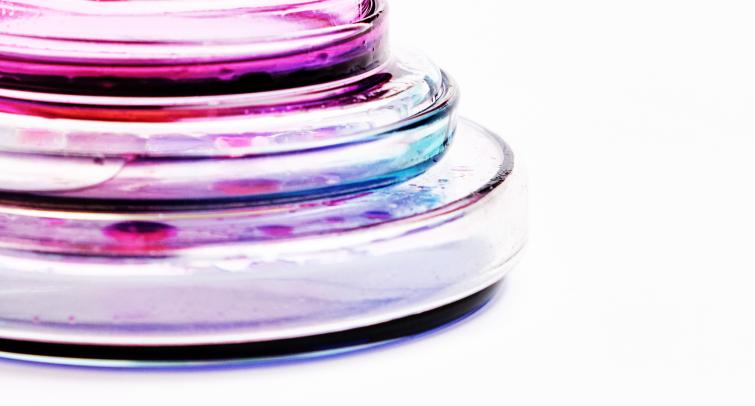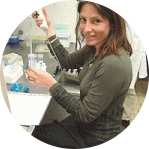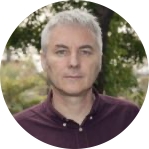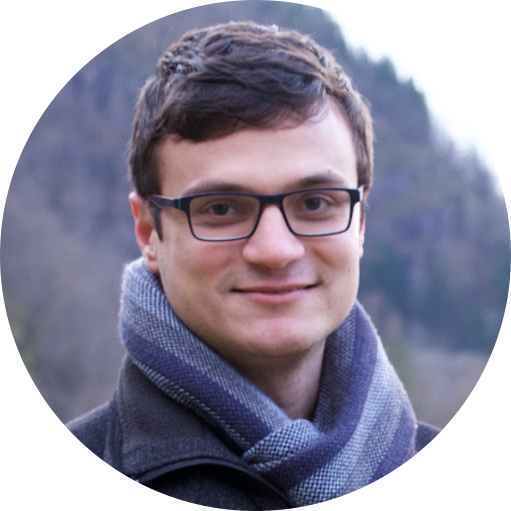
 awards
awards
2019 Fondation de France medical awards, Institut Pasteur Young Scientist Prize
- 2019 Fondation de France medical awards
Every year, the Fondation de France and several other foundations under its aegis award medical prizes in recognition of the work achieved by research teams and as a means of encouraging promising young researchers.
Two Institut Pasteur scientists have been recognized this year:
 Rachel Golub, from the Lymphocytes and Immunity Unit, was awarded the Georges Zermati Prize, which goes to an Institut Pasteur scientist regardless of discipline. Her research focuses on the development of innate lymphoid cells in homeostatic and inflammatory conditions like hepatic steatosis and hepatocellular carcinoma.
Rachel Golub, from the Lymphocytes and Immunity Unit, was awarded the Georges Zermati Prize, which goes to an Institut Pasteur scientist regardless of discipline. Her research focuses on the development of innate lymphoid cells in homeostatic and inflammatory conditions like hepatic steatosis and hepatocellular carcinoma.
 Didier Ménard, Head of the Malaria Genetics and Resistance five-year unit, won the Thérèse Lebrasseur Prize, which recognizes research by an Institut Pasteur scientist that does not involve vivisection. His research aims to shed light on the molecular mechanisms involved in the emergence and spread of resistance to antimalarial treatments by Plasmodium falciparum, the agent of severe malaria.
Didier Ménard, Head of the Malaria Genetics and Resistance five-year unit, won the Thérèse Lebrasseur Prize, which recognizes research by an Institut Pasteur scientist that does not involve vivisection. His research aims to shed light on the molecular mechanisms involved in the emergence and spread of resistance to antimalarial treatments by Plasmodium falciparum, the agent of severe malaria.
- 2020 Institut Pasteur Young Scientist Prize
The prize, set up by the senior management team to mark the Institut Pasteur's 130th anniversary, is awarded to a PhD student and a post-doctoral fellow who were first authors of high-level research papers published in 2019.
This year, the board, composed of the external members of the Scientific Council, selected two laureates who stood out not only for the quality of their scientific papers but also for the innovative nature and impact of their respective research.
 In the post-doctoral fellow category: Ziad Al Nabhani, who worked in the Microenvironment and Immunity Unit led by Gérard Eberl, demonstrated how exposure to the microbiota early in life determines susceptibility to inflammatory diseases in adulthood. The results of his work are published in two high impact journals: Immunity and Nature Metabolism.
In the post-doctoral fellow category: Ziad Al Nabhani, who worked in the Microenvironment and Immunity Unit led by Gérard Eberl, demonstrated how exposure to the microbiota early in life determines susceptibility to inflammatory diseases in adulthood. The results of his work are published in two high impact journals: Immunity and Nature Metabolism.
![]() In the PhD student category: Sofia Medvedeva, whose main project focused on exploration and characterization of natural CRISPR spacer diversity in hyperthermophilic archaea in terrestrial hot springs. Her research was carried out entirely at the Institut Pasteur, in the Archaeal Virology five-year unit led by Mart Krupovic, and led to a publication in Nature Communications with Sofia as sole first author.
In the PhD student category: Sofia Medvedeva, whose main project focused on exploration and characterization of natural CRISPR spacer diversity in hyperthermophilic archaea in terrestrial hot springs. Her research was carried out entirely at the Institut Pasteur, in the Archaeal Virology five-year unit led by Mart Krupovic, and led to a publication in Nature Communications with Sofia as sole first author.